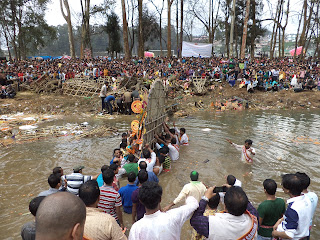 The Mongoloid feature forms very much a part of India’s racially-diverse face, Meghalaya Governor, Ranjit Shekhar Mooshahary emphasized here today.
The Mongoloid feature forms very much a part of India’s racially-diverse face, Meghalaya Governor, Ranjit Shekhar Mooshahary emphasized here today.
Mooshahary said at an inter-state youth-exchange and home stay programme of the National Service Scheme (NSS), that he is often mistaken for a “Chinese or Japanese” outside the northeastern region.
Gesturing to his face, he said: “when you go back you should dispel this impression that this kind of face only belongs to a Japanese or Korean. This kind of face also belongs to an Indian,” he told the young students.
 India is the most racially diverse nation on the planet. In the northern, western and eastern corners of the country the population is predominated by the Aryans, while in the South it is the Dravidian population who are in majority.
India is the most racially diverse nation on the planet. In the northern, western and eastern corners of the country the population is predominated by the Aryans, while in the South it is the Dravidian population who are in majority.
The Mongoloid population has made the northeastern corner of the country as their home, while the Negroid race is found in some parts of western and southern India and the Andaman and Nicobar Islands.
All these people from different races have made India their home from thousands of years, unlike the recent migration of racially diverse people to Europe and America.
Mooshahary said that India is unique because it presents one of the most diverse pictures of any nation. “A Kashmiri has a different language, face, traditional dress, music and religion from someone who lives in the south, but this is not the same in say between two Europeans,” Mooshahary added.
 He pointed out that despite two people being racially different Europeans, there is lot in common between them when it comes to dress, food habit, language, script, music, in most cases religion and other lifestyles.
He pointed out that despite two people being racially different Europeans, there is lot in common between them when it comes to dress, food habit, language, script, music, in most cases religion and other lifestyles.
“The pride and wealth of India is its diversity and the spirit of tolerance to accommodate all the different colours and hues to make what we call India,” the Governor said.
Mooshahary said any education which fails to imbibe into a person this spirit and ethos of a “diverse and tolerant India,” such education remains “incomplete.”
















































